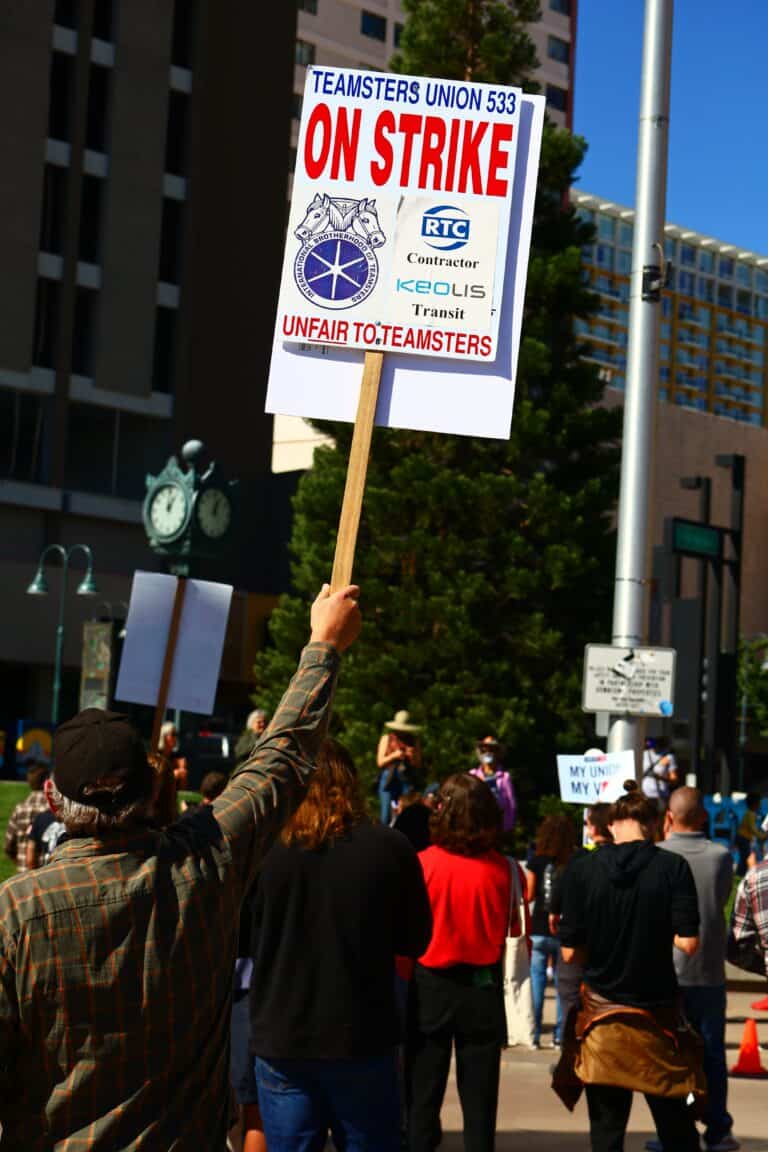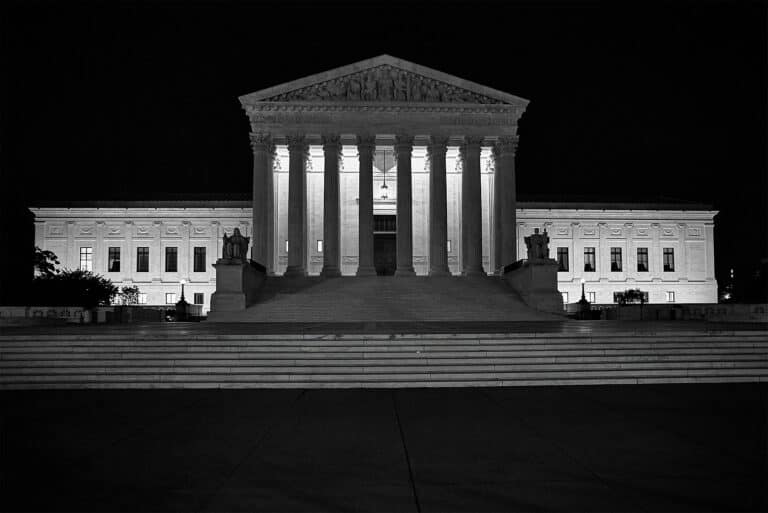Gali Racabi is an S.J.D. candidate at Harvard Law School and a fellow at the Harvard Labor and Worklife Program.
In late April, and for the first time in its history, the Supreme Court of Israel decided that a law is unconstitutional because it violated employees’ property rights to their wages. The law in question required that those who employed asylum seekers deduct 20% from the asylum seeker’s monthly wages (as well as an additional 16% paid by the employer) to be deposited into a special deposit account given to the employee upon leaving Israel.
This brute measure was meant to “incentivize” asylum seekers to leave the country, and was challenged in Court by asylum seekers from Sudan and Eritrea, Israeli civil-rights organizations, and opposed by employers of asylum seekers. The Court, citing the devastating effects of the COVID epidemic on asylum seekers communities in Israel, and the detrimental effects of the large deduction on the already impoverished wages of these workers, ruled that the employee deduction disproportionally harms their constitutional right to property, and therefore, void.
This decision is the latest episode of a decade-long back-and-forth between the Knesset, Israel’s legislative body, and the Supreme Court of Israel on various immigration and asylum policies. Israel’s right-wing governments and the Knesset have been pushing for more stringent laws limiting immigration and asylum; NGOs and the Supreme Court have been pushing back.
This recent decision has an interesting work-law twist to it. This decision is the Supreme Court’s first explicit recognition of wages as employee “property,” a protected constitutional right under the Basic Law: Human Dignity and Liberty (functionally a part of Israel’s constitution), and the first decision of the Court to invalidate a law that mandates wage deductions on constitutional grounds. The decision to nullify that part of the law was (rightfully) celebrated in Israel’s liberal circles as a big win for asylum seekers and the organizations that support them over Israel’s xenophobe right-wing government. But this decision could make organized labor in Israel, and much of its corporatist regime vulnerable to constitutional legal threats.
As American labor folks might appreciate, setting a precedent for constitutional scrutiny of wage deductions could have some detrimental effects. While the US legal route of constitutional examination of agency-fees went through defining agency-fees as compelled subsidization of speech, in Israel, courts now gained access to scrutinize any state-mandated wage deduction through the definition of wages as property. While the mere recognition of an interest as a constitutionally protected right has less bite in the Israeli context than in the US, its potential impact is far from insignificant.
The scope of social systems in Israel now explicitly exposed to constitutional scrutiny is notable. This group includes vital social policies like income tax, the national mandatory pension system, social security, the health tax – and most pertinent to a comparison with the US – union dues and compulsory agency fees. All of these social systems are built, at least in part, on state-mandated, or state-authorized, deductions from an employee’s wages. Also, many public-sector collective bargaining agreements and state-extended sectoral agreements also include other mandatory deductions like for paid vacation and professional training funds.
Until cabined by future decisions, the precedential recognition of employee wages as constitutionally protected functions as a “loaded weapon,” waiting for the right hands and the right context to be utilized. In the case of organized labor, the hands might be those of organizations and right-wing politicians that seek to duplicate the US model and lodge legal and political attacks on Israel’s organized labor and its corporatist-like welfare regime. This method includes two prongs: a direct attack on organized labor and attempts to block needed reform.
In Israel, direct attacks are likely to face some unique legal roadblocks. First and foremost is the Savings Clause of the Israeli Basic Law: Human Dignity and Liberty, which shields legislation that came into effect before 1992 from the Basic Law’s reach. This presumably keeps the current legal arrangement regarding union dues and agency fees, which was most recently amended in 1988, safe from constitutional revision. However, this protection from judicial scrutiny does not apply, for example, to Israel’s mandatory pension system, which was established in 2008 by an extension order, nor to any updates or changes to “saved” laws made after 1992.
Another obstacle that stands in the way of a direct legal assault on laws that mandate employee’s wage deduction is the proportionality requirement. According to the structure of Israel’s Basic Law: Human Dignity and Liberty, a court can intervene on infringing law only if the law disproportionally harms a protected right. This requirement also seems to mitigate this decision’s potential impact on mandatory agency fees, legally capped at 1% of the employee wage.
Both the Savings Clause and the Proportionality requirement mean that while an Israeli Janus is less likely to take place, any future new or amended social policy that relies on wage deductions is vulnerable to constitutional legal challenges. This susceptibility might lead to a chilling effect with regard to attempts to update or modify Israel’s welfare regime.
The Israeli system can also be distinguished from the US system by the fact that in Israel constitutional claims may be brought against non-state actors. In other contexts, constitutional rights have been applied against “semi-public” entities and were even recognized as a unique tort claim between private parties. This leads to a whole slew of legal possibilities, from employees attacking their unions for concessions made in collective bargaining agreements to employees claiming that pay cuts violate their protected property rights.
Time will tell whether this precedent will be cabined as just another chapter in the fight over Israel’s immigration policies, or whether it has laid the cornerstone for radical change in the legal politics of the Israeli semi-corporatist state. One thing is for sure, labor lawyers on both sides of the aisle should hone their constitutional-law-as-labor-law intuitions. In this vein, the US experience offers some valuable lessons and precautions.










Daily News & Commentary
Start your day with our roundup of the latest labor developments. See all
January 22
Hyundai’s labor union warns against the introduction of humanoid robots; Oregon and California trades unions take different paths to advocate for union jobs.
January 20
In today’s news and commentary, SEIU advocates for a wealth tax, the DOL gets a budget increase, and the NLRB struggles with its workforce. The SEIU United Healthcare Workers West is advancing a California ballot initiative to impose a one-time 5% tax on personal wealth above $1 billion, aiming to raise funds for the state’s […]
January 19
Department of Education pauses wage garnishment; Valero Energy announces layoffs; Labor Department wins back wages for healthcare workers.
January 18
Met Museum workers unionize; a new report reveals a $0.76 average tip for gig workers in NYC; and U.S. workers receive the smallest share of capital since 1947.
January 16
The NLRB publishes its first decision since regaining a quorum; Minneapolis labor unions call for a general strike in response to the ICE killing of Renee Good; federal workers rally in DC to show support for the Protecting America’s Workforce Act.
January 15
New investigation into the Secretary of Labor; New Jersey bill to protect child content creators; NIOSH reinstates hundreds of employees.